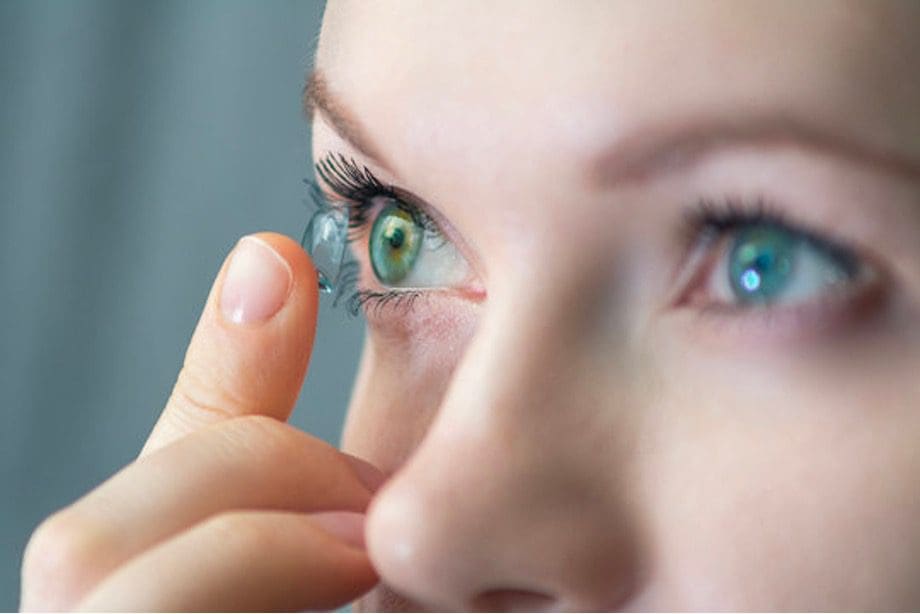Europe’s love for contact lenses is continuing to grow throughout the continent. But why do Europeans prefer them so much to glasses?
According to data from EuromContact, which is the European association of the contact lens and lens care industry, there are now more contact lens wearers throughout the continent than ever before, with growth being recorded for both daily disposable and reusable lenses throughout the market.
Throughout the 11 European regions that EuromContact covers, some 6.6% of the population between 15 and 64 years old wear soft contact lenses, while the total number of wearers grew by 4.76% in 2022 in comparison to the year before.
Among the nations with the highest volume of wearers, Denmark recorded 13.52% contact lens wearers within its population, with Sweden and Norway weighing in at 12.29% and 11.12% respectively.
With the total contact lens market size set to reach $17.4 billion by 2030, Europe appears to be leading the way in driving growth throughout the industry.
But what’s driving this steady increase in demand for contact lenses throughout Europe? And could the continent be showing early signs of visually impaired citizens rejecting more traditional eyewear in favor of more discreet contacts?
Let’s take a deeper look at the lure of contact lenses, and how they may be steadily driving an eyewear revolution:
Why Contact Lenses are Gaining in Popularity
Although the debate between contact lenses and glasses is largely subjective, and often down to personal preference, it’s clear that contacts are set to increase in popularity throughout the decade.
Many contact lens wearers prefer their lenses, and many glasses wearers don’t like the experience of wearing contacts, making the choice between the two more a matter of comfort and convenience.
While contacts offer more natural vision, wearers must also care for their lenses, order a supply annually, and regularly maintain them to avoid the risk of eye infections, they can bring a number of benefits to wearers that many glasses may not be capable of replicating. These perks can include:
1. Better Comfort During Activities
For a great many of us, contact lenses can be essential tools in providing the freedom to be more active and sporty than glasses can offer.
When it comes to playing sports, there are lots of games that prohibit the use of glasses among players. This is because traditional eyewear can come with plenty of health risks–particularly when it comes to contact sports. For instance, if they’re hit by a ball or another player by accident, they can cause injury to the wearer and if the lenses shatter there can be a risk of serious injury.
Contact lenses, on the other hand, are less liable to get in the way during sports or other physical activities, and can even help to improve the performance of the wearer. This is because they can offer better peripheral vision than glasses.
This improved peripheral vision can be useful for just about any activity, and may even make driving safer.
2. Replicating Natural Vision
The sustained rise in contact lens wearers is also likely down to the better performance of lenses in providing a natural field of vision.
Because contact lenses move with your eye, there are no frames or gaps between glass lenses that interrupt your ability to see.
Furthermore, glasses are susceptible to steaming up in certain environments, which can lead to more difficulties in vision that don’t exist with contact lenses.
3. Fewer Instances of Distortion
Crucially, contact lenses also don’t distort or reflect light in a way that glasses are prone to do. Because your contacts match the shape of your eye, they perfectly complement your natural vision. However, glasses sit in front of your eyes, meaning that light can reflect off of the lenses and create a glare that makes it difficult to see clearly.
This can also be the case when you have your picture taken with glasses on. The reflection of flashes on your lenses could hinder the quality of the picture while such issues don’t exist for contact lenses.
4. Building More Confidence with Contacts
Depending on the wearer’s subjective interpretation of glasses, contact lenses can also help people to feel more confident in their appearance.
This is because contact lenses are so discreet and entirely clear, that it can be extremely difficult for others to see any difference in the wearer’s appearance. Glasses are an accessory that’s placed in the middle of the wearer’s face, making them unmissable.
Although many glasses wearers find lenses that complement their appearance, for many others this type of eyewear can cause them to lose confidence and self-esteem.
For Europeans, the perks of contact lenses are sufficient to see more wearers emerge on a regular basis. With a market set to top $17.4 billion by the end of the year, we’re likely to see more individuals around the world follow the lead of Europe and opt for more comfortable, discreet, and functional contacts in the future.








Leave a Reply
View Comments